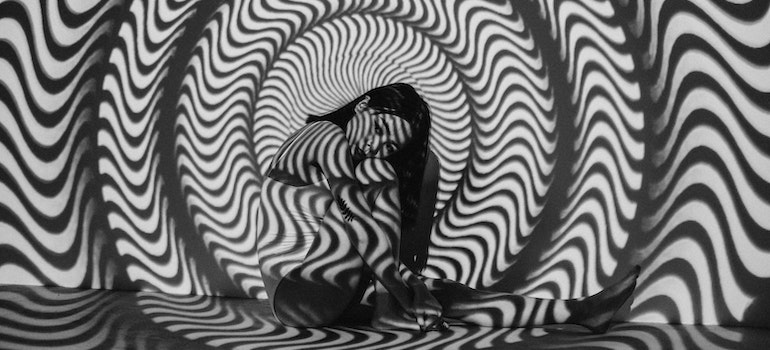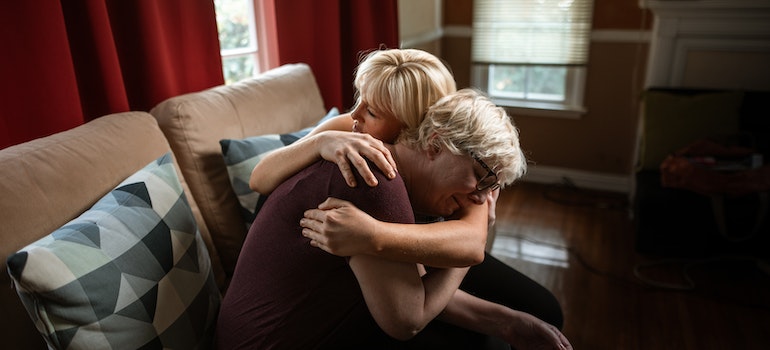Benzodiazepine withdrawal syndrome affects many individuals yearly and can have profound physical and psychological impacts. Its onset often follows the discontinuation or reduction of benzodiazepines – medications commonly used for managing anxiety and insomnia. At Harmony Ridge Recovery Center WV, understanding this syndrome is crucial for those affected directly or indirectly.
Our aim is to break down complex medical jargon into understandable terms, shedding light on the symptoms, risks, and management strategies. It is important to remember that anyone experiencing this condition should seek professional help, as the withdrawal process can be challenging and potentially dangerous if not correctly managed. We hope to empower you with the knowledge to navigate the journey of withdrawal and recovery more effectively.
Defining and Understanding Benzodiazepines
Benzodiazepines, often referred to as “benzos,” are a class of medications that include commonly prescribed drugs such as Xanax, Ativan, and Valium. They are primarily used in the medical field for managing conditions like anxiety, insomnia, and occasionally, muscle spasms or seizures. However, while they can be effective for short-term relief, their long-term use can lead to dependence, paving the way for Benzodiazepine withdrawal syndrome when usage is reduced or discontinued.
Furthermore, we’ve seen firsthand the struggles of individuals who require Benzo detox in WV. Prolonged use of these medications can alter the brain’s chemical structure, making the body reliant on them for normal functioning. This dependence triggers withdrawal symptoms when one attempts to stop using benzodiazepines, which should always be managed under medical supervision. It’s important to realize that stopping benzodiazepine use isn’t about willpower. It’s about understanding the physiological impacts and navigating the path to recovery with professional support.

The Symptoms of Benzodiazepine Withdrawal
Benzodiazepine withdrawal syndrome can manifest a wide range of physical and psychological symptoms. Recognizing these symptoms and understanding addiction is essential to provide appropriate care and support during withdrawal.
Physical Symptoms
During Benzodiazepine withdrawal, individuals may experience various physical manifestations, including:
- Tremors and muscle stiffness—Uncontrolled trembling and tightness are common physical symptoms.
- Sweating and palpitations—Profuse sweating and a racing heart can be distressing during withdrawal.
- Nausea and vomiting—Gastrointestinal disturbances like nausea and vomiting may occur.
- Headaches—Intense headaches can result from the body adjusting to the absence of benzodiazepines.
- Insomnia and sleep disturbances—Sleep disruptions are common during withdrawal, leading to fatigue and irritability.
Psychological Symptoms
The psychological impact of Benzodiazepine withdrawal syndrome can be challenging to cope with and includes:
- Anxiety and panic attacks—Feelings of anxiety and panic can intensify during withdrawal.
- Confusion and cognitive difficulties—Individuals may experience mental fog and difficulty concentrating.
- Depression and mood swings—Emotional instability, sadness, and sudden mood changes can occur.
- Hallucinations and delusions—Some individuals may experience hallucinations or delusions in severe cases.
- Irritability and agitation—Feelings of restlessness and irritability are common psychological symptoms.
To manage these symptoms effectively, seeking professional help is crucial. Individual therapy for addiction in WV can offer tailored support to address the psychological aspects of Benzodiazepine withdrawal syndrome. Additionally, understanding the complexities of this addiction can provide a better perspective on the challenges faced during withdrawal. A supportive environment and access to counseling can significantly improve the overall withdrawal experience and increase the chances of successful recovery.

Risks and Complications of Benzodiazepine Withdrawal
While withdrawal from benzodiazepines is a necessary step toward recovery, it is essential to acknowledge the potential risks and complications associated with the process. Abruptly discontinuing benzodiazepines or attempting to taper off without medical supervision in a facility such as a drug rehab near Athens OH can lead to severe consequences that may require immediate medical attention.
Seizures and Medical Emergencies
Abrupt cessation of benzodiazepines can trigger seizures, which pose significant health risks. These medical emergencies require prompt intervention to prevent further complications.
Rebound Symptoms
Some individuals may experience a rebound effect during withdrawal; the original symptoms return with heightened intensity. For instance, anxiety or insomnia may worsen temporarily, making the process even more challenging.
Psychiatric Complications
Benzodiazepine withdrawal syndrome can lead to various psychiatric complications, such as psychosis and suicidal ideation. In severe cases, individuals may experience hallucinations, delusions, or disordered thinking. Also, the emotional strain of withdrawal can lead to thoughts of self-harm, necessitating immediate support and intervention.
Protracted Withdrawal
For some individuals, benzodiazepine withdrawal symptoms may persist for an extended period, even after the acute phase has subsided. This condition, protracted withdrawal, can last for weeks or months.
It is vital to seek professional help to mitigate these risks and complications and consider options like a rehab near Marietta OH. Such facilities offer medical supervision, personalized treatment plans, and a supportive environment to ensure a safer and more successful withdrawal process. Choosing the right rehabilitation program can significantly improve the chances of a smoother recovery journey and reduce the potential risks of withdrawal syndrome.

Management Strategies for Benzodiazepine Withdrawal
Successfully managing Benzodiazepine withdrawal syndrome requires a comprehensive approach that addresses the condition’s physical and psychological aspects. Working closely with healthcare professionals to develop an individualized plan that suits the patient’s specific needs and circumstances is essential.
Medical Supervision and Individualized Plan
Seeking medical supervision during benzodiazepine withdrawal is crucial for safety and effectiveness. Healthcare professionals can evaluate the patient’s medical history, current health status, and benzodiazepine usage to create a personalized withdrawal plan. This plan will gradually remove the benzodiazepine dosage, reducing the risk of severe withdrawal symptoms and complications.
Gradual Tapering of Dosage
Abruptly stopping benzodiazepines can be dangerous, leading to severe withdrawal symptoms and potential health risks. Gradual tapering, under the guidance of medical professionals, allows the body to adjust more smoothly to reduced drug levels. Tapering schedules can be adjusted based on the individual’s response, ensuring a more comfortable and manageable withdrawal process.
Psychological Support and Counseling
The psychological impact of Benzodiazepine withdrawal syndrome can be challenging to navigate alone. Individual therapy, such as cognitive behavioral therapy for substance use disorders in WV, can provide invaluable support during withdrawal. Therapy can help individuals cope with anxiety, depression, and other emotional challenges that arise during the process.
Additionally, dialectical behavior therapy for addiction in WV can benefit individuals who struggle with intense emotions and difficulty regulating them.
Non-Benzodiazepine Medications
Sometimes, healthcare professionals may prescribe non-benzodiazepine medications to manage withdrawal symptoms. These medications can help alleviate anxiety, insomnia, and other physical and psychological discomforts associated with Benzodiazepine withdrawal syndrome.
Lifestyle Modifications
Engaging in healthy lifestyle practices can significantly impact the withdrawal process. Regular exercise, a balanced diet, and sufficient sleep can support the body’s natural healing mechanisms and improve overall well-being during withdrawal.
By combining these management strategies, individuals can enhance their chances of a successful and more comfortable withdrawal experience. It is important to remember that the journey to recovery is unique for each person, and seeking professional help ensures that the process meets the individual needs and circumstances.

Gradual Withdrawal and Recovery Timeline
The journey of benzodiazepine withdrawal can be both physically and emotionally demanding. Understanding the timeline of withdrawal and recovery can provide individuals with a clearer perspective on what to expect during the process. Remember, each person’s experience may vary, and seeking professional support, such as psychotherapy for addiction in WV, can significantly impact the recovery journey.
Early Withdrawal Phase (Week 1-2)
During the initial phase, individuals may experience acute withdrawal symptoms as the body adjusts to the decreasing benzodiazepine levels. Physical symptoms like tremors, sweating, insomnia, heightened anxiety, and mood swings may peak.
Middle Withdrawal Phase (Weeks 3-4)
As the dosage continues to decrease, some of the acute symptoms may begin to subside. However, individuals may still experience emotional challenges like depression and irritability. Sleep disturbances may persist.
Late Withdrawal Phase (Weeks 5 onwards)
Physical symptoms typically decrease in the final withdrawal phase, and emotional stability gradually improves. However, some individuals may still experience lingering symptoms, and protracted withdrawal can sometimes occur.
Recovery Timeline
The recovery timeline varies depending on individual factors, including the duration and dosage of benzodiazepine use. While some may feel significant relief within a few weeks, others may take several months to recover fully. Engaging in psychotherapy can be particularly beneficial during this phase, as it provides support, coping strategies, and a safe space to process emotions and challenges.
It is essential to remember that recovery is a gradual process, and patience and self-compassion are vital during this time. Seeking professional help and staying connected with support networks can significantly contribute to a successful and smoother recovery journey.

Monitoring Progress and Seeking Professional Help
Throughout the benzodiazepine withdrawal process, monitoring progress and seeking professional help are crucial to ensuring safety and effective management. Regular check-ins with healthcare professionals and utilizing available support services can significantly contribute to a smoother recovery journey.
Regular Check-ins with Healthcare Professionals
During the withdrawal process, it is essential to maintain open communication with healthcare providers. They can assess the individual’s progress, monitor any changes in symptoms, and adjust the withdrawal plan accordingly. Regular check-ins help ensure the withdrawal process is on track and promptly address any potential complications.
Utilizing Support Services
Support services, such as individual therapy and counseling, are crucial in providing emotional support and coping strategies during withdrawal. For instance, motivational interviewing for substance abuse in WV is a powerful approach that can help individuals explore and resolve ambivalence about recovery, enhancing their motivation to change.
Recognizing Red Flags
Both individuals experiencing withdrawal and their loved ones need to recognize the red flags of potential complications. These can include worsening symptoms, signs of substance misuse, or mental health concerns. Early identification of red flags can prompt timely intervention and prevent escalation.
Adjusting the Plan as Needed
The withdrawal process is not linear, and individual responses can vary. As such, it is essential to be flexible with the withdrawal plan and adjust based on the individual’s needs. Healthcare professionals can provide valuable guidance in modifying the plan to optimize results.
Preparing for Challenges
Withdrawal from benzodiazepines can be challenging, and individuals may face hurdles. Preparing for potential setbacks and challenges can help individuals navigate difficult times and maintain motivation to stay on track with their recovery goals.
By actively monitoring progress and seeking professional help, individuals can ensure they are receiving the necessary support and resources to manage the complexities of Benzodiazepine withdrawal syndrome effectively. After all, each person’s journey of withdrawal and recovery is unique, and there is no one-size-fits-all approach. Connecting with healthcare professionals and support networks can significantly contribute to a safer and more successful withdrawal experience.
Supporting Loved Ones During Benzodiazepine Withdrawal
Support from loved ones is crucial for individuals going through benzodiazepine withdrawal. Here are some tips for providing meaningful assistance:
- Educate Yourself—Learn about benzodiazepine withdrawal to understand their experience better.
- Be Patient and Empathetic—Recognize the emotional toll of withdrawal and offer reassurance.
- Encourage Professional Help—Advocate for medical supervision and therapy.
- Create a Soothing Environment—Reduce stress and create a calm space.
- Engage in Open Communication—Be receptive to their feelings and concerns.
- Set Realistic Expectations—Understand the unpredictable nature of withdrawal.
- Offer Supportive Activities—Engage in calming hobbies or exercises together.
At the same time, consider seeking family therapy for addiction in WV to navigate this challenging time effectively. Your unwavering support can significantly impact their recovery journey.

Coping with Post-Withdrawal Challenges
The journey doesn’t end with benzodiazepine withdrawal; post-withdrawal, challenges may arise as the body and mind adjust to life without the medication. Protracted withdrawal symptoms, such as lingering anxiety or insomnia, can be discouraging. Coping with these challenges requires persistence and self-compassion. Engaging in healthy lifestyle practices, maintaining a support network, and considering ongoing therapy can aid in managing post-withdrawal challenges.
Moreover, continue seeking professional help to address persistent emotional or psychological difficulties. Each individual’s recovery timeline is unique, and being patient with yourself is essential. Celebrate even the smallest victories and stay committed to your well-being. With time and support, post-withdrawal challenges can be navigated successfully, leading to a brighter and healthier future.
Overcome Benzodiazepine Withdrawal Syndrome with the Right Support
Understanding Benzodiazepine withdrawal syndrome and its management strategies is crucial for anyone navigating this challenging journey. Seeking medical supervision, therapy, and a strong support network are essential to successful withdrawal and recovery. With the right support and determination, individuals can overcome the hurdles of withdrawal and move toward a healthier and brighter future. If you or someone you know is facing benzodiazepine withdrawal, reach out for professional help and embrace the power of healing and resilience. There is hope for a life free from the chains of Benzodiazepine dependence, and a better, more fulfilling path lies ahead.



